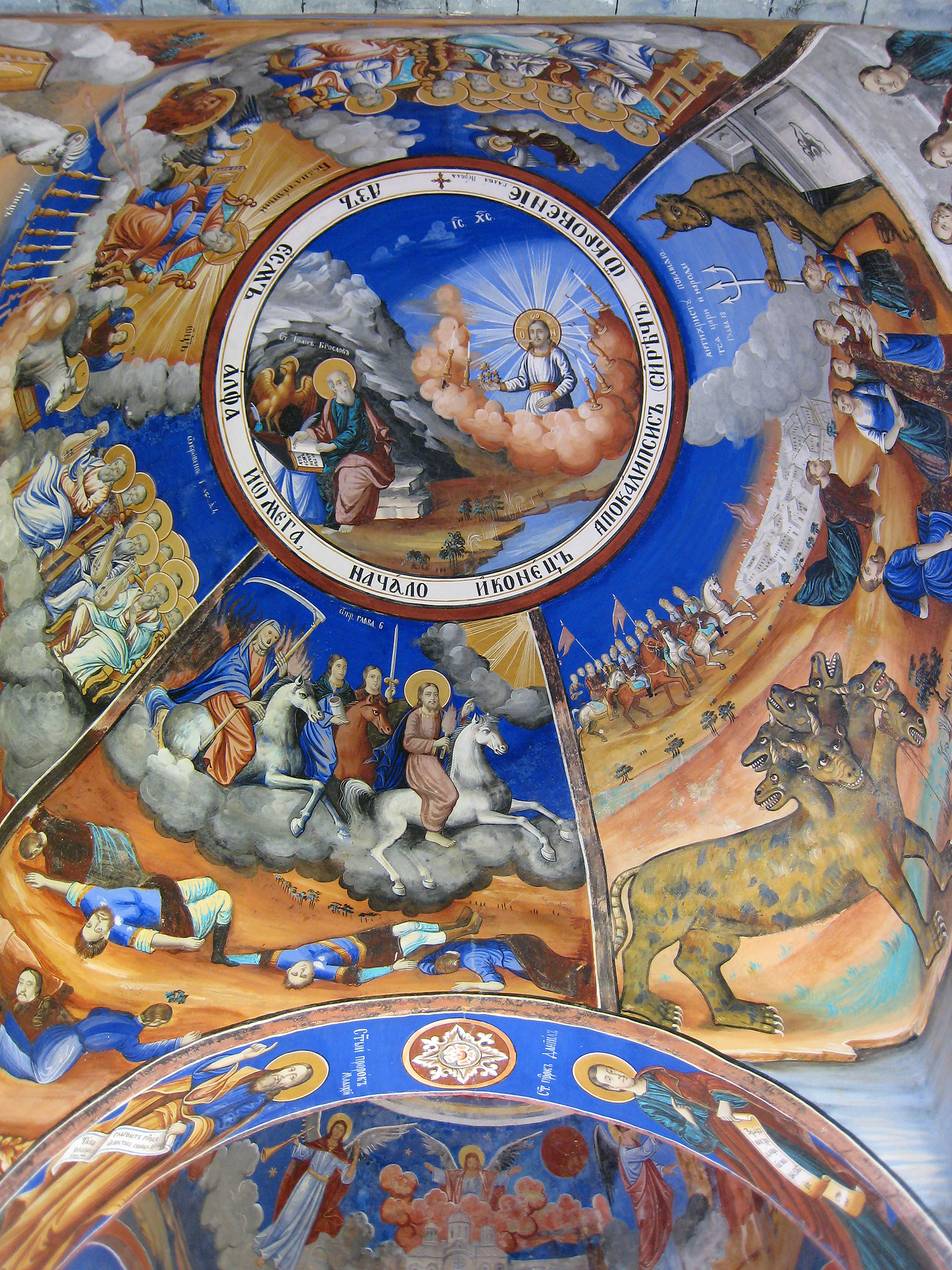
Apocalypse
Apocalypse (from Ancient Greek ἀποκάλυψις (apokálupsis) 'revelation, disclosure') is a literary genre in which a supernatural being reveals cosmic mysteries or the future to a human intermediary.[1] The means of mediation include dreams, visions and heavenly journeys,[2] and they typically feature symbolic imagery drawn from the Hebrew Bible,[3] cosmological and (pessimistic) historical surveys, the division of time into periods, esoteric numerology, and claims of ecstasy and inspiration.[4] Almost all are written under pseudonyms (false names), claiming as author a venerated hero from previous centuries,[5] as with the Book of Daniel, composed during the 2nd century BC but bearing the name of the legendary Daniel.[6]
This article is about the literary genre in Judeo-Christian religious culture. For the related genre of religious writings about "end times", see Apocalyptic literature. For contemporary fiction about cataclysm in general, see Apocalyptic and post-apocalyptic fiction. For other uses, see Apocalypse (disambiguation).
Eschatology, from Greek eschatos, last, concerns expectations of the end of the present age,[7] and apocalyptic eschatology is the application of the apocalyptic world-view to the end of the world, when God will bring judgment to the world and save his followers.[8] An apocalypse will often contain much eschatological material, but need not: the baptism of Jesus in Matthew's gospel, for example, can be considered apocalyptic in that the heavens open for the presence of a divine mediator (the dove representing the spirit of God) and a voice communicates supernatural information, but there is no eschatological element.[9]
Scholars have identified examples of the genre ranging from the mid-2nd century BC to the 2nd century AD,[10] and examples are to be found in Persian and Greco-Roman literature as well as Jewish and Christian.[11] The sole clear case in the Jewish Bible (Old Testament) is chapters 7-12 of the Book of Daniel, but there are many examples from non-canonical Jewish works;[12] the Book of Revelation is the only apocalypse in the New Testament, but passages reflecting the genre are to be found in the gospels and in nearly all the genuine Pauline epistles.[13]
Definition and history[edit]
"Apocalypse" has come to be used popularly as a synonym for catastrophe, but the Greek word apokálypsis, from which it is derived, means a revelation.[13] It has been defined by John J Collins as "a genre of revelatory literature with a narrative framework, in which a revelation is mediated by an otherworldly being to a human recipient, disclosing a transcendent reality which is both temporal, in that it envisages eschatological salvation, and spatial, insofar as it involves another, supernatural world."[14] Collins later refined his definition by adding that apocalypse "is intended to interpret present, earthly circumstances in light of the supernatural world and of the future, and to influence both the understanding and the behaviour of the audience by means of divine authority."[14]
The genre of Jewish and Christian apocalypse flourished c.250 BC-250 AD, but its antecedents can be traced back much further, in the Jewish prophetic and wisdom traditions (e.g., Ezekiel 1-3 and Zechariah 1-6), and in the mythologies of the Ancient Near East, which have left a legacy of symbology (e.g., the sea as a symbol of chaos in Daniel 7 and Revelation 13:1).[15] Zoroastrian dualism may also have played a role.[10] The reasons for its rise are obscure, but there seems to be a connection to times of crisis, such as the 2nd century BC persecution of the Jews reflected in Daniel's final vision, or the destruction of the Temple in 70 AD reflected in 4 Ezra and 2 Baruch.[16]